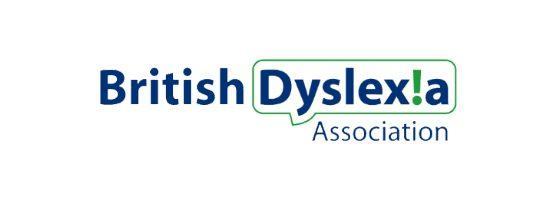Dyslexia Diagnosis
What is Dyslexia
Dyslexia is a learning difference which primarily affects reading and writing skills. However, it does not only affect these skills. Dyslexia is actually about information processing. Dyslexic people may have difficulty processing and remembering information they see and hear, which can affect learning and the acquisition of literacy skills. Dyslexia can also impact on other areas such as organisational skills.
It is important to remember that there are positives to thinking differently. Many dyslexic people show strengths in areas such as reasoning and in visual and creative fields.
What to Look For in a Dyslexia Assessor
It is important when booking a diagnostic assessment for dyslexia to ensure that the assessment is carried out by a professional who is suitably qualified. Some may hold an Advanced Practicing Certificate (APC) which enables the report to be used to apply for Disability Living Allowance (DLA)
In order to be able to diagnose dyslexia Sarah Niner holds the following:
- A Specialist Teacher Assessor level 7 specialist qualification
- British Dyslexia Association (BDA) membership, known as AMBDA which requires renewal every 3 years. I am also obliged to undertake regular Continuing Professional Development (CPD) to keep up to date.
- DBS clearance
- She does not hold an APC
Dyslexia Diagnostic Assessment
A Diagnostic Assessment is intended to confirm whether an individual has dyslexia or not. It provides a confirmed diagnosis of dyslexia, as well as a clearer picture of the person’s strengths and weaknesses and their individual cognitive profile.
The Diagnostic Assessment will be followed by a written report. This report will provide evidence of the individual’s dyslexic profile (if the individual has been confirmed as having dyslexia), signposting to other organisations or further assessments for specific learning difficulties (if required), and will include some recommendations about how to support the individual in the context of their study and/or day-to-day life.
A Diagnostic Assessment can only be carried out by a certified person qualified to assess, such as a:
- A psychologist specialising in specific learning difficulties (SpLD) registered with the Health Care Practitioners Council (HCPC)
- Specialist teacher/assessor with AMBDA and/or an Assessment Practising Certificate (APC)
Why have an assessment?
There are many reasons why you may decide to have a Diagnostic Assessment to find out whether you, or your child, is dyslexic. Some of the most common are that:
- It can help parents to understand their child’s difficulties and know how best to help them at home, or be able to ask for more targeted support within the education system.
- It can be used to support an application for Exam Access Arrangements (this should be discussed with the school/college first as assessors cannot complete a Form 8 without the school completing part A in advance)
- Students in higher education will need an assessment in order to apply for Disabled Students Allowance (DSA)
Once a person has been formally identified as dyslexic then they are considered to have a recognised disability covered by the Equality Act 2010.
What happens during an assessment?
A Diagnostic Assessment will usually take up to three hours to complete.
The assessment will take place in a private room (such as the individual’s normal place of learning). It must be quiet and free from disturbances with a writing surface/table available.
During an assessment the assessor will carry out a series of tests to explore aspects of underlying ability such as:
- Reading, writing and spelling
- Handwriting and fine motor skills
- Underlying learning skills: phonological awareness, speed of processing and memory, speech and language and auditory processing.
There is an informal chat before the assessment to gather a little more background information with both the educational setting and family.
The aim is
- To formally diagnose dyslexia (if this is supported by the test results)
- To assess performance on a range of items, allowing the assessor to consider strengths and weaknesses. This isn’t an exam so there is no “pass” or “fail” - the intention is to help highlight the person’s individual style of learning or working and what does/doesn’t work for them.
- To collect information about reading, spelling and writing skills.
- To identify whether there is a clear discrepancy between general level of ability and reading and writing attainment.
- To consider other factors which may be affecting learning.
- To identify whether any Reasonable Adjustments will need to be made in order for a person to fully access the curriculum and exams.
- To identify whether Reasonable Adjustments need to be made to a person's place of work.
After the assessment the assessor may be able to provide some insight but they will need time to calculate the test scores and analyse the results in order to give a diagnosis. This information will be provided in the subsequent report.
What happens after an assessment?
After a Diagnostic Assessment you will receive a written report within 15 working days.
This report will provide evidence of the individual’s dyslexic profile (if the individual has been confirmed as having dyslexia), signposting to other organisations or further assessments for specific learning difficulties (if required).
The report will include some recommendations about how to support the individual in the context of their learning or day-to-day life.
We aim for the report to be a document that the individual is happy to share with family, teachers, tutors, other professionals and employees if they wish, as this will give them information on how they can help to provide support.
Medway can offer schools or families a diagnostic assessment for £280.
Please contact the school directly to discuss further options.

